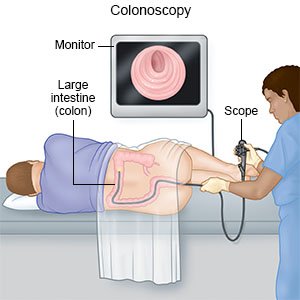Rectal Prolapse
Medically reviewed by Drugs.com. Last updated on Aug 4, 2025.
A rectal prolapse is a condition that causes your rectum to come through your anus. The rectum is the end of your bowel. A prolapse may happen during a bowel movement. A prolapse may happen more often in women after childbirth or who are older than 50 years.
WHILE YOU ARE HERE:
Informed consent
is a legal document that explains the tests, treatments, or procedures that you may need. Informed consent means you understand what will be done and can make decisions about what you want. You give your permission when you sign the consent form. You can have someone sign this form for you if you are not able to sign it. You have the right to understand your medical care in words you know. Before you sign the consent form, understand the risks and benefits of what will be done. Make sure all your questions are answered.
Monitoring:
- Vital signs give healthcare providers information about your health. Healthcare providers will check your blood pressure, heart rate, breathing rate, and temperature.
- A pulse oximeter measures the percentage of oxygen in your blood. It gives the closest measurement without having to draw your blood. A pulse oximeter (pulse ox) can be used continuously or periodically.
- Intake and output Your intake and output may be measured. Healthcare providers will keep track of the amount of liquid you are getting. They also may need to know how much you are urinating. Ask healthcare providers if they need to measure or collect your urine.
Pain medicine
may be given. Do not wait until the pain is severe before you ask for more medicine.
Tests:
- Manometry tests the strength of your anal and rectal muscles. It also tests the nerves that make your anus and rectum work. A small tube will be placed inside your rectum. You may feel mild discomfort. Your healthcare provider will inflate a balloon on the end of the catheter. He or she will ask you to squeeze and push like you are having a bowel movement. A wire attached to the end of the tube will measure the pressures in your rectum. It may show your healthcare providers what is causing your rectal prolapse.
- A colonoscopy is a procedure to look for problems in the rectum or other places in the bowel. Before the procedure, you may be given medicine to help you relax. Your healthcare provider will use a scope to look inside your bowel for polyps or tissue growths. A scope is a flexible tube with a small light and camera on the end. Your healthcare provider may take samples of tissue.

- Nerve testing looks for problems with the nerves that control your rectum and anus. If these nerves are damaged, they cannot tell your muscles how to control your rectum and anus. Damaged nerves can cause a rectal prolapse.
Manual reduction of a rectal prolapse
is a procedure to place your rectum back inside of the anus. Your healthcare provider may give you medicine to help you relax before the procedure. He or she may have you lie on your back with your knees bent. He or she may apply sugar to your rectum to reduce swelling and make it easier to put back in. He or she will apply gentle, steady pressure to your rectum and push it back inside of your anus. He or she may need to hold pressure for several minutes. He or she may place gauze and tape across your buttocks to prevent a rectal prolapse from happening again.
Treatment:
- Injections may prevent your rectum from moving through your anus. You may be given one or more shots of numbing medicine. A needle will be inserted into the rectum and medicine will be given. You may feel some pushing or discomfort as the needle enters your rectum.
- Surgery may be needed if other treatments do not work. The type of surgery may depend on the cause of your rectal prolapse. Surgery can help position your rectum so that it does not come down through your anus. Surgery may include placing sutures or mesh to hold the rectum in place. It may also involve removing part of the rectum.
RISKS:
A rectal prolapse may stop blood flow to your rectum. You may need emergency surgery to fix the prolapse. A rectal prolapse may happen again even after treatment.
CARE AGREEMENT:
You have the right to help plan your care. Learn about your health condition and how it may be treated. Discuss treatment options with your healthcare providers to decide what care you want to receive. You always have the right to refuse treatment.© Copyright Merative 2025 Information is for End User's use only and may not be sold, redistributed or otherwise used for commercial purposes.
The above information is an educational aid only. It is not intended as medical advice for individual conditions or treatments. Talk to your doctor, nurse or pharmacist before following any medical regimen to see if it is safe and effective for you.
Further information
Always consult your healthcare provider to ensure the information displayed on this page applies to your personal circumstances.
